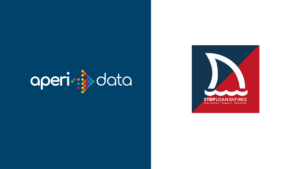In auto finance, delays cost conversions. You know speed matters, but the real challenge is maintaining it without compromising the quality of the decision. Traditional workflows slow things down. Income verification that depends on payslips or bank uploads, affordability assessments based on outdated or incomplete data, and systems that still treat every applicant as a standard case.
But they’re not.
Multiple income sources, variable pay cycles, and rising fixed costs. These are now often the norm. Yet without a real-time view of someone’s financial position, it’s easy to misprice, mistime, or miss the opportunity altogether.
That’s where Open Banking data comes in. With access to live, categorised transaction data across income, outgoings, assets and liabilities, auto finance providers can assess risk with more precision, make decisions faster, and reduce drop-offs in the process.
Here’s how.
The affordability challenge in Auto Finance
While auto finance lenders already have some form of affordability built into their process, the challenge lies in the quality and relevance of the data being used to drive those assessments, quickly.
That’s where the friction starts.
Credit bureau data shows history, not current reality. Payslips don’t tell you what’s hitting the account. And asking applicants to upload statements creates delay, dropout, and inconsistent results, especially for non-salaried workers.
In auto finance, these gaps show up in familiar ways:
- Self-employed or gig workers flagged as high-risk, despite having consistent, reliable income.
- Customers overstretched but approved, because their actual outgoings weren’t visible at the point of decision.
- Applicants abandoned mid-journey, after being asked to manually submit documents.
More checks won’t solve the problem. What’s needed is better input (live, complete, and decision-ready) so underwriters aren’t working around blind spots, and automation doesn’t rely on guesswork.
The goal is the same: fast, responsible credit decisions. But getting there depends on having the right data at the right point in the process.
What Open Banking data really delivers for Auto Finance
In auto finance, decision speed is a commercial advantage but only when paired with confidence in the data driving those decisions. Static reports, income self-declarations, and post-application uploads are slow, inconsistent, and often incomplete. They create friction for the customer and risk exposure for the lender.
With six out of ten car buyers open to considering multiple vehicle options at the start of their shopping process, and Millennials researching an average of 18-20 different vehicle models before making a purchase decision, the window for capturing their attention is narrow. Over 75% of consumers would visit dealerships more often if the car buying process were improved, highlighting how process friction directly impacts conversions.
But not with Open Banking data. Open Banking data provides a more direct route to decision-ready insight.
By accessing real-time, consented transaction data, enriched and structured via API, you can build a far more accurate picture of someone’s financial position at the exact point of application. Not last month. Not inferred. Actual income and expenditure behaviour, observed in the flow of daily transactions.
For auto finance, this capability reshapes what’s possible:
- Real-time income verification: Go beyond headline figures to understand income by type (e.g. salaried, benefits, freelance), frequency, and consistency which is essential for accurately underwriting self-employed, gig economy, or portfolio earners.
- Detailed expense profiling: Classify essential and discretionary outgoings automatically, including direct debits, priority bills, and high-cost credit. This enables more nuanced affordability decisions and supports better downstream collections outcomes.
- Multi-account consolidation: View income and outgoings across all consented accounts in one dataset. This reduces reliance on partial information and reveals financial behaviours that siloed systems often miss.
Real-time data feeds remove the dependency on customer-submitted evidence. They support straight-through processing for standard applications and enable faster referrals where needed, without compromising on governance.
“This collaboration brings Open Banking into the heart of automotive finance, embedding AperiData’s intelligent platform into iVendi’s showroom and online products. The result is a faster and more transparent motor finance experience at scale. With the launch of Finance Navigator, we expect to significantly reduce lender declines, and provide greater transparency to the end consumer. By partnering with Aperidata we can leverage the power of Open Banking which creates exciting opportunities to help lenders with income verification.” Rob Severs – SVP Products & Insight – Ivendi |
The question is no longer whether Open Banking data is needed in auto finance. It’s how quickly can it be embedded into existing decision engines, without adding technical debt or complexity?
Why AperiData fits Auto Finance workflows
Open Banking data is only useful if it fits the way Auto Finance works. That’s one of the most common reasons lenders choose AperiData.
From categorisation to integration, every element is designed to serve the operational realities of lending, where accuracy, speed, and auditability have to coexist.
✅️ Built for credit workflows
AperiData’s API surfaces live, categorised affordability data that can be consumed in real time, whether via direct API feed or our Credit Console interface. That means no reliance on raw transaction strings, and no heavy lifting on your end to structure or interpret data.
✅️ Powered by machine learning, fine-tuned for auto
Income and expenditure are classified by type and regularity using proprietary machine learning models. That includes differentiating between salary, self-employment, benefits, and one-off transfers, giving underwriters a clear view of income stability. Outgoings are grouped by category, allowing you to assess financial headroom without making assumptions.
✅️ High-resolution affordability insight
Get a complete view of assets, liabilities, recurring commitments, and affordability trends, calculated at customer and account level. These insights can be tracked across multiple timeframes and updated dynamically.
✅️ Simple, low-friction integration
Whether you’re embedding into a custom decision engine or working with a third-party platform, AperiData is designed to integrate cleanly into your workflow. We provide developer-friendly documentation, responsive technical support, and flexible delivery options.
✅️ Regulated, reliable, audit-ready
As both an FCA-authorised Account Information Service Provider and Credit Reference Agency, our data infrastructure meets the governance and audit standards expected by risk teams, boards, and regulators.
For credit and operations teams under pressure to move faster and stay compliant, this is a practical, low-impact way to raise the quality of every decision.
Faster auto finance starts with better data
In auto finance, it’s no longer enough to optimise for speed alone. Those winning market share are those that can move fast and make better-informed decisions, without increasing friction, overhead, or risk.
This is particularly key at a time when over 60% of car buyers now have a strong preference for online car buying experiences, with nearly half indicating they’d be comfortable purchasing a vehicle entirely online. In this environment, any delay in providing financing decisions means losing customers to competitors who can respond faster.
Open Banking removes the guesswork from affordability, speeds up verification, and gives credit teams access to real financial insight the moment they need it.
AperiData brings that data into your workflow—accurately categorised, FCA-regulated, and ready to support real-time decisioning. No PDFs. No waiting. Just the visibility your underwriters and automation teams need to say yes or no, faster.
Want to see what this looks like in practice? We’d love to walk you through how two auto lenders have just started using AperiData to modernise their affordability checks. Book a demo.




